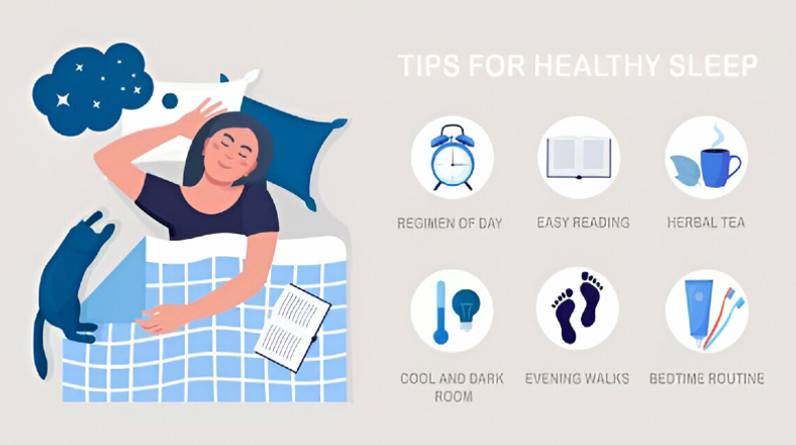Achieving restful and rejuvenating sleep is crucial for maintaining overall health and well-being. Sleep plays a vital role in physical recovery, mental health, and daily performance. However, many people struggle with sleep issues that can significantly impact their quality of life.
This article will guide you through establishing healthy sleep habits to enhance your rest and recovery.
The Importance of Sleep for Health and Recovery
Sleep is essential for various bodily functions, including muscle repair, memory consolidation, and hormone regulation. Quality sleep promotes better immune function, enhances cognitive performance, and reduces the risk of chronic diseases.
Creating an Optimal Sleep Environment
An optimal sleep environment is crucial for a good night’s rest. Ensure your bedroom is dark, quiet, and cool. Invest in a comfortable mattress and pillows that support your sleeping position.
Minimizing exposure to electronic devices before bedtime can also help signal to your body that it’s time to wind down.
Developing a Consistent Sleep Routine
Establishing a consistent sleep routine helps regulate your internal clock. Try to go to bed and wake up at the same time every day, even on weekends. Develop relaxing pre-sleep rituals such as reading, meditating, or taking a warm bath. These activities can signal to your body that it’s time to prepare for sleep.
Addressing Sleep Disorders and Seeking Professional Help
If you’re struggling to get a good night’s sleep, you’re not alone. Millions of people worldwide experience sleep disorders like insomnia, sleep apnea, and restless legs syndrome. These conditions can significantly disrupt your sleep quality, leading to daytime fatigue, decreased concentration, and even health problems.
The good news is, with proper diagnosis and treatment, you can significantly improve your sleep. Here are some steps you can take:
- Schedule a consultation with your doctor. They can review your symptoms, medical history, and lifestyle to determine if you have a sleep disorder.
- Consider a sleep study. This painless overnight test measures your brain waves, breathing patterns, and muscle activity while you sleep. It helps doctors diagnose specific sleep disorders and recommend the most effective treatment.
- Explore treatment options. Depending on your diagnosis, treatment might involve lifestyle changes (like establishing a regular sleep schedule), cognitive behavioral therapy for insomnia (CBT-I), or medication.
Chronic Back Pain and Sleep
For those experiencing severe back pain that disrupts sleep significantly, exploring local spine surgery options might be necessary for significant pain relief, leading to improved sleep quality and overall health. Treatment options include Anterior Cervical Discectomy and Fusion (ACDF) for neck problems or Lumbar Transforaminal Lumbar Interbody Fusion (TLIF) for lower back issues. However, surgery is always a last resort, and these decisions should be made in consultation with a qualified back doctor after exploring all other treatment options.
Before making any decisions, consulting with a qualified back doctor is essential, after exploring all other treatment avenues such as pain management techniques, physical therapy, and lifestyle adjustments.
After discussing your situation with a doctor, you can research spine surgery facilities online or seek recommendations from your doctor. If you’re seeking options, New Jersey boasts modern and world-class spine surgery facilities, providing exceptional care and innovative treatments. These facilities are equipped with state-of-the-art technology and staffed by highly skilled surgeons and medical professionals who specialize in addressing various spinal conditions.
By seeking professional help for sleep disorders and chronic back pain, you can disrupt the cycle and attain better sleep and overall well-being.
Lifestyle Changes to Improve Sleep Quality
Incorporating lifestyle changes like regular exercise not only enhances sleep quality but also contributes to overall well-being. Maintaining a balanced diet and avoiding caffeine or heavy meals before bedtime can promote better sleep.
Conclusion
Establishing healthy sleep habits is a fundamental step towards better rest and recovery. By creating an optimal sleep environment, developing a consistent sleep routine, addressing sleep disorders, and making necessary lifestyle changes, you can enhance your sleep quality and overall health.



